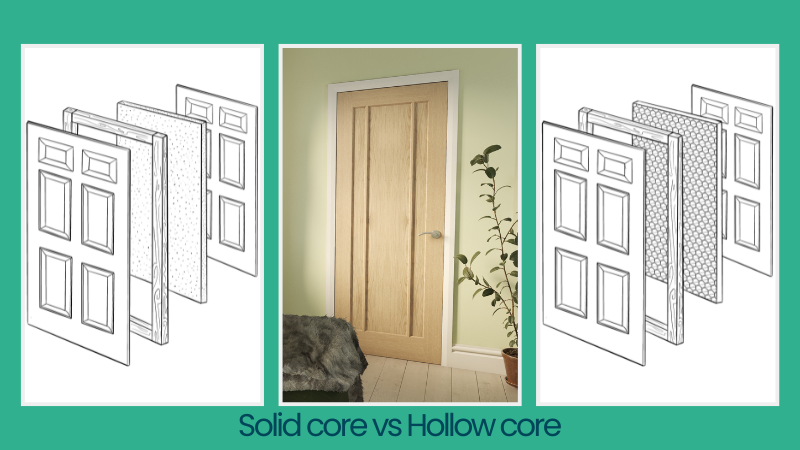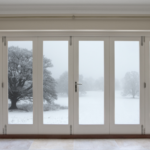When you’re choosing internal doors there are plenty of things to consider. There’s the style, colour, finish and glazing options. But have you thought about the type of core you choose? It might seem insignificant if you’re concentrating on looks, but the choice you make could make a big difference to your room.
Find out why as we cover the different types of core and their advantages. With this expert guide, you’ll be able to choose the interior doors that best suit your needs and your budget.
Hollow Core Doors: What Do I Need to Know?
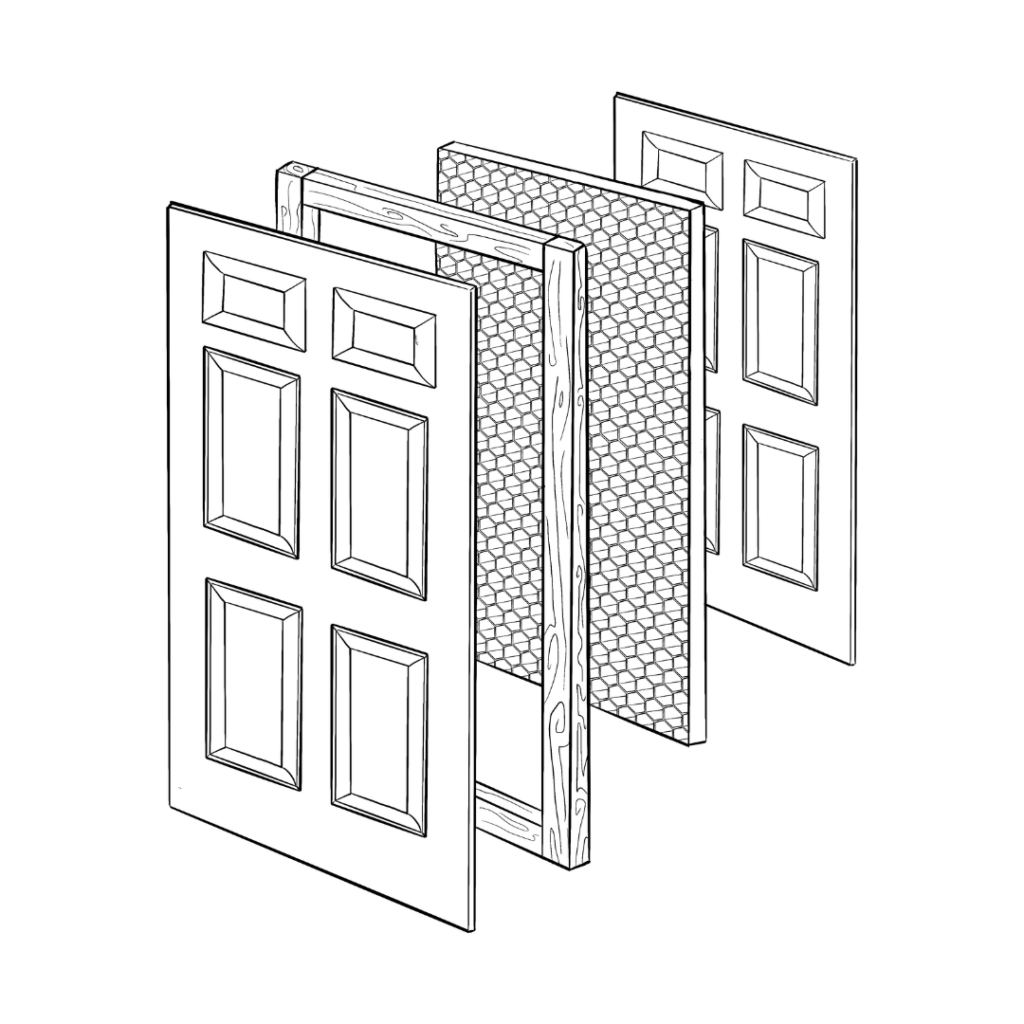
Let’s start by discussing the hollow core door, what exactly it is and what are the benefits and drawbacks of having one in your home?
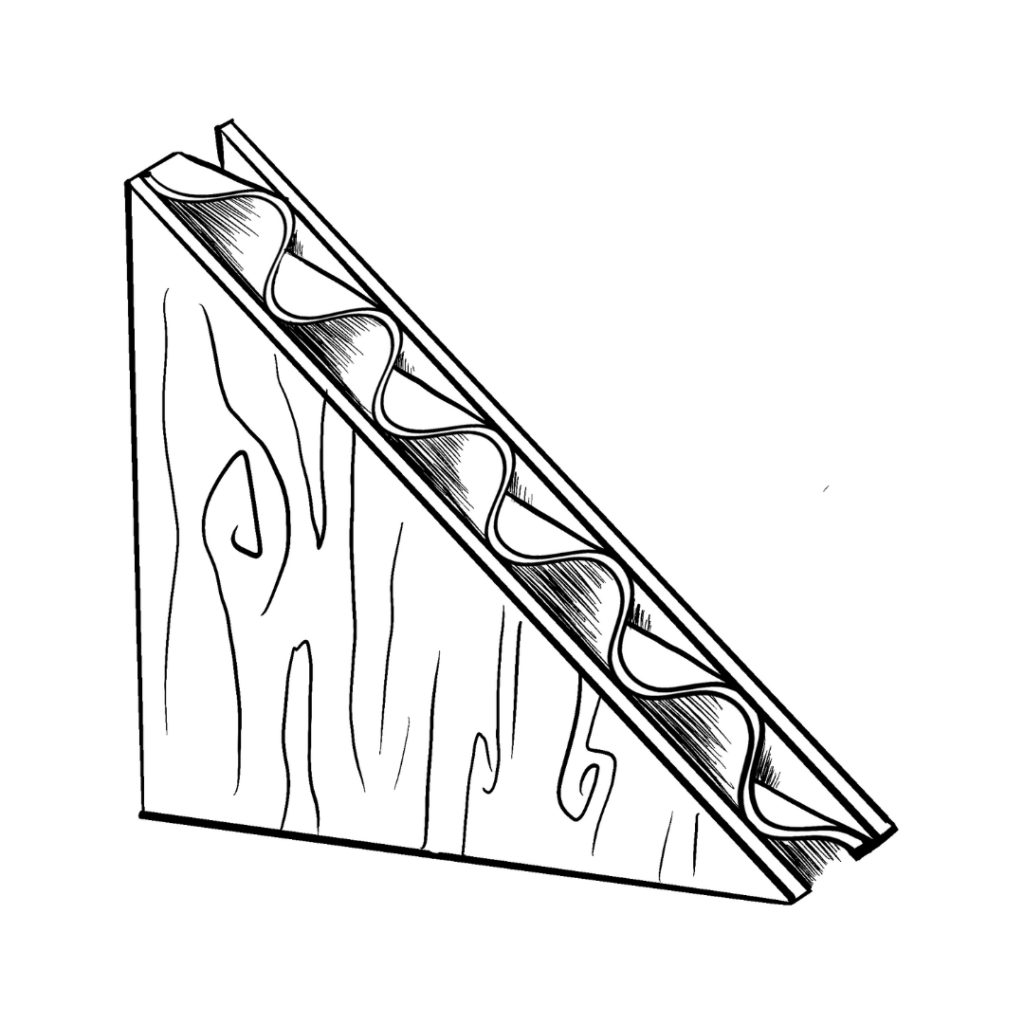
What is a hollow core door?
A hollow core door is constructed by applying a thin layer of wood or fiberboard over a honeycombed core made of cardboard or plastic. These doors are affordable and commonly used for interior passage doors in residential buildings. They provide cost savings while serving their purpose as lightweight interior doors.
Are hollow core doors good?
Hollow doors are a good choice when sound proofing, privacy concerns, or heavy wear and tear are not a priority. They are cost effective and lightweight, but may not provide the same level of durability, sound proofing or insulation as solid core doors.
How long do hollow core doors last?
Hollow core wood doors have an average lifespan of around 40 years, but they can last anywhere from 10 to 50 years. However, it is important to note that they are more susceptible to damage such as dents and punctures compared to other types of doors.
Can hollow core doors be trimmed?
Yes, hollow core doors can be trimmed by clamping a straight edge and making the cut.
This method is commonly used to adjust the door size to fit specific openings. However, you’ll need to make sure you only trim the outer lipping. If you trim off too much and reach the hollow core, the door will be unsuitable for use.
How much can I trim off a hollow core door?
You can safely trim most hollow core internal doors by a few millimetres to allow for a thicker carpet, adjust for measurement errors or uneven doorframes. However, take note of the lippings and trim directions provided with your specific door and trim it with care as removing too much may compromise the door’s structural integrity.
Solid Core Doors: Your Questions Answered
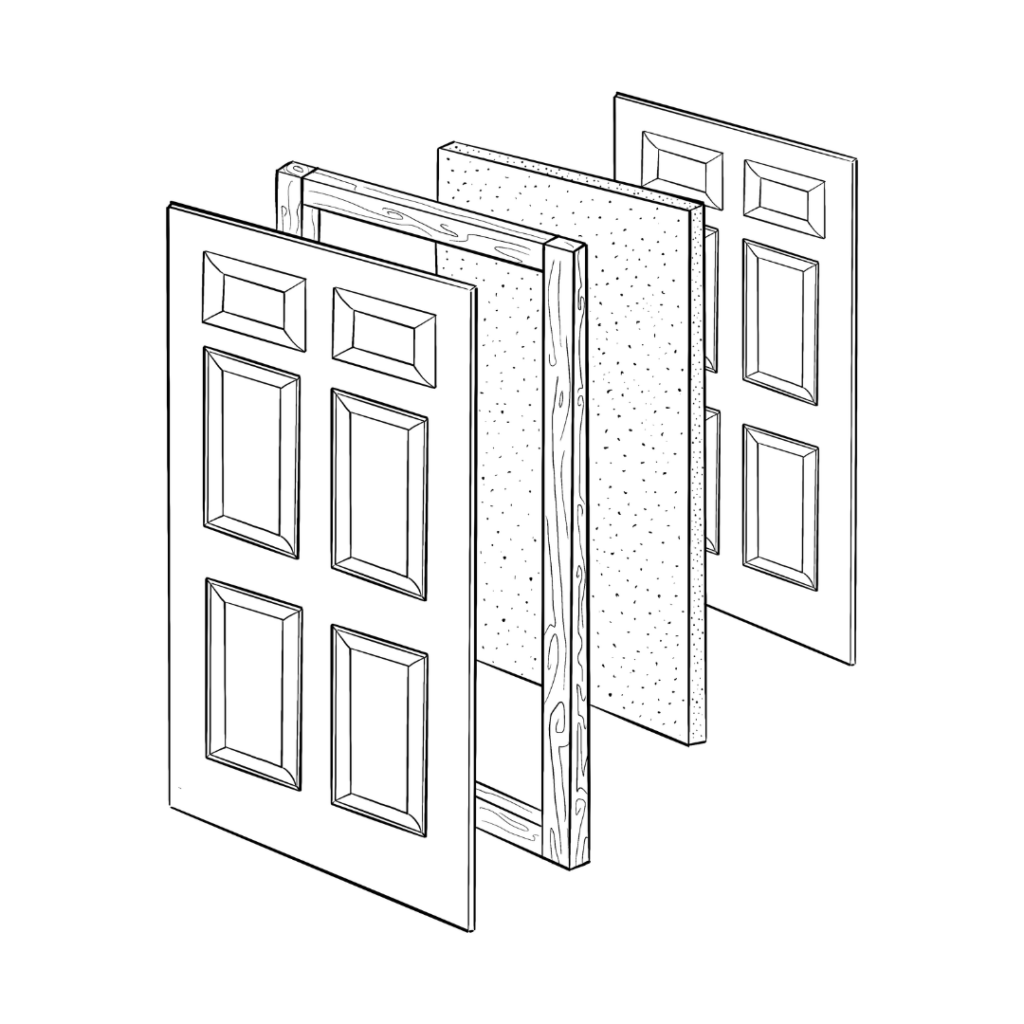
Now, it’s time to explore the solid core option and all its plus and minus points when it comes to selecting your perfect new door.
What does a solid core door mean?
A solid core door refers to a door with a solid filling made of engineered non-natural wood like MDF, covered with wood veneer. These doors offer a balance between solid wood and hollow core doors, providing durability at a more affordable cost. Their sturdy construction makes them ideal for various applications.
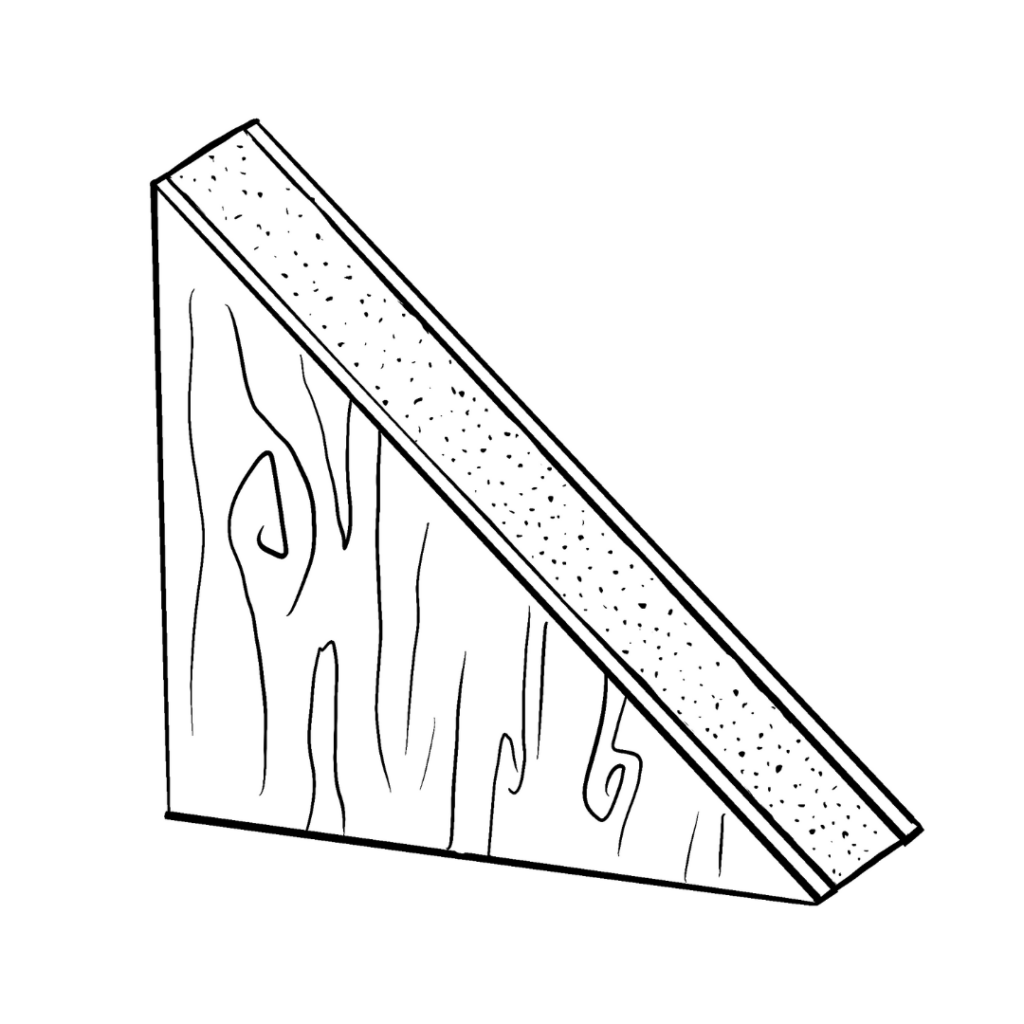
Do solid core doors really make a difference?
Yes, solid core doors do make a significant difference in your home. With their thicker and denser material, they offer better sound proofing and excellent insulation, helping to prevent heat loss and improve energy efficiency.
What are the disadvantages of solid core doors?
Some disadvantages of solid core doors include the difficulty of installation due to their weight, the challenge of repairing them, and the higher price point. However, they offer benefits such as sound insulation and increased durability. Consider these factors before choosing if they are the right doors for you.
Are solid core doors more expensive?
Yes, solid core interior doors are generally more expensive compared to hollow doors, but they offer a middle-ground option between cost and quality. While they may seem like an easy choice due to the variety of styles available, it’s important to consider their drawbacks and balance them with your budget and specific needs.
Do solid core doors add value?
Yes, solid core doors can add value to your home. Installing solid wood interior doors can increase resale value and provide a more durable alternative to hollow core doors. Choose between pre-hung doorsets or single leaf options for an easy replacement.
The Differences Explained
So now you know about each type of core, how do they compare?
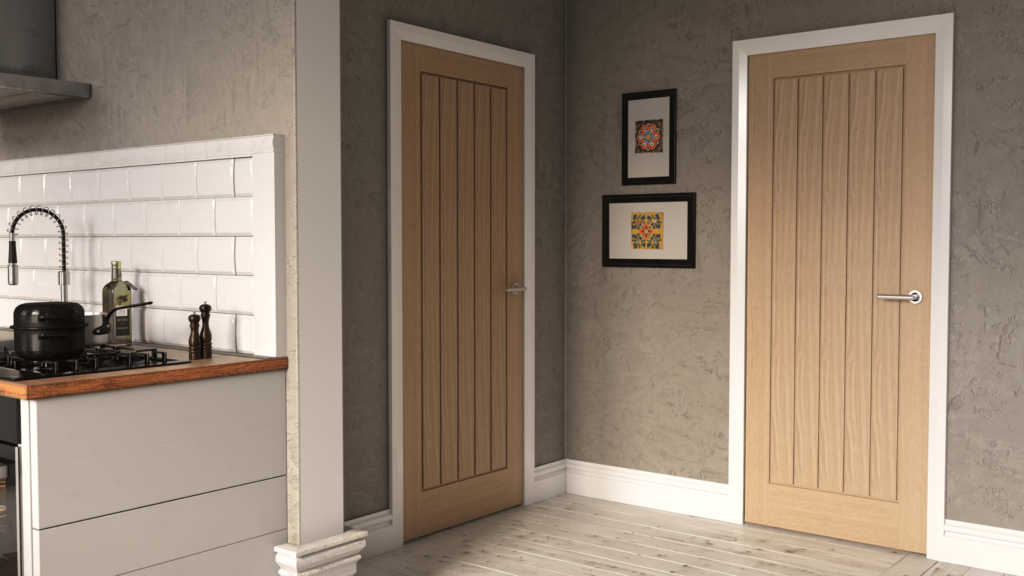
What is the difference between standard core and hollow core door?
The main difference between standard core and hollow doors is their composition. While standard core internal doors are made entirely of wood, hollow-core doors feature a honeycomb cardboard interior enclosed by fiberboard or veneer. Hollow doors have the advantage of being lighter and more affordable.
What is the difference between solid core and wood core door?
Solid core doors are different from wood core doors as they are primarily made of heavy fiberboard instead of solid wood. The fiberboard provides soundproofing and a sense of security. Solid core doors feature a higher quality material like hardwood veneer on the outside so generally, you can’t tell they’re not solid wood by looking at them.
Should bathroom doors be hollow or solid?
Opting for solid core doors is recommended for bathroom doors. These doors offer enhanced privacy and sound insulation, making them ideal for a peaceful and private bathroom experience. They are also less prone to expanding and contracting in hot and humid conditions, making them an ideal choice for bathrooms. Including solid core doors in your design can improve the quality and functionality of your bathroom space.
What is better, solid core or hollow core interior doors?
Solid core interior doors are generally better than hollow doors. They offer higher quality and durability, along with improved sound and heat insulation. Although hollow-core doors are more affordable and easier to install, solid core doors provide a superior value and performance.
So should you choose hollow core doors or solid doors?
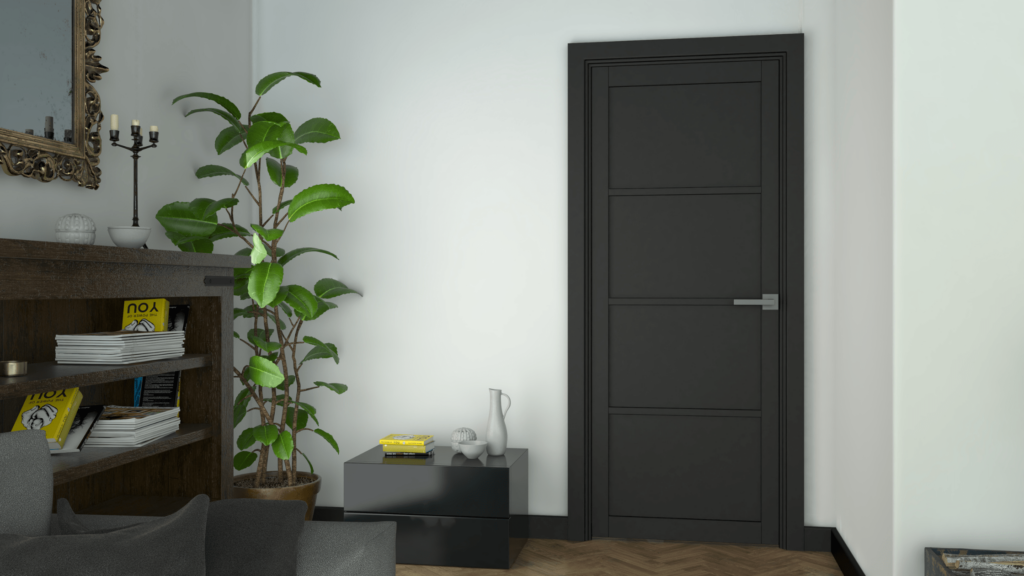
If you’re looking for a long lasting, insulating and sound proof option then a solid engineered core is the one to choose. However, if you want a quick and affordable change in your décor then hollow core could be an appropriate option.
Both types of core have their benefits and the best choice is the one that suits your current needs. If you’re flipping a property to sell for example, you might choose a hollow core simply to get the right look on a budget. But if you’re a homeowner investing in the quality of your home life you’d benefit from a solid core. Either way, there are plenty of styles in both core types to help you add that finishing touch.


